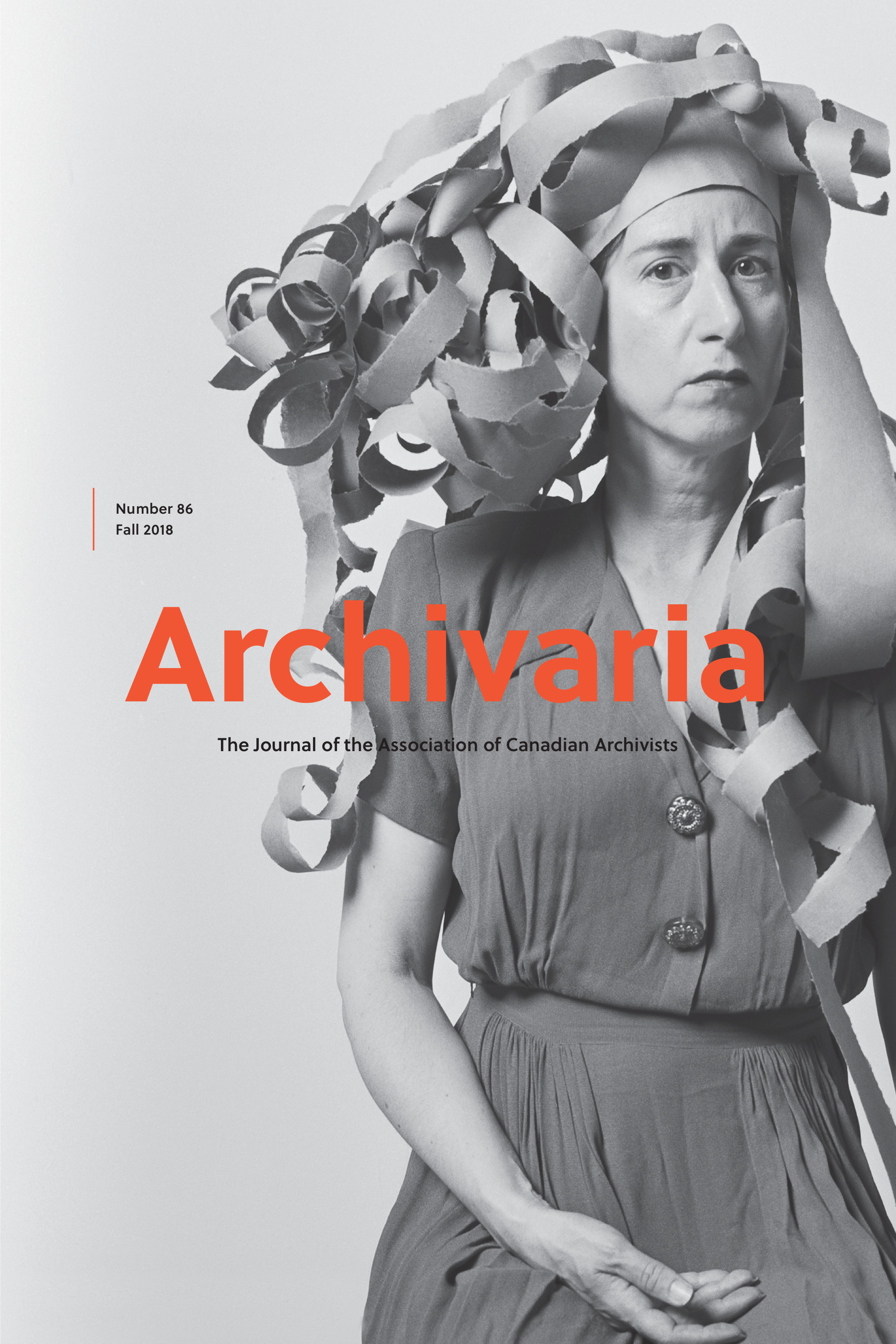Looking for a Place to Happen: Collective Memory, Digital Music Archiving, and the Tragically Hip
Abstract
This article takes the Canadian band the Tragically Hip as a case study in pro-amateur digital music archiving and also considers the larger place of the band’s music within the context of cultural memory. After lead singer and lyricist Gord Downie’s cancer diagnosis in 2016, the band made the remarkable decision to undertake a Canadian tour, which became one of the most obsessively documented rock tours in Canadian history. Drawing on close readings of the band’s performances and some of the digital records that capture them, the article argues for the importance of considering questions of evidence and memory together, especially in the context of archiving popular music. The article begins with a discussion of the Tragically Hip’s value as an archival case study, which is based on the band’s linking of composition and live improvisation. It then turns to the engagement of the band’s songs with the materials of Canadian collective memory, the work of bootleg collectors and pro-am archivists in the documentation of performance history, and the documentation of the band’s final Canadian tour in 2016. Throughout, the article examines how professional and pro-am archiving can complement each other in the case of a band like the Hip, whose music is so closely linked to the idea of Canadian collective memory.
RÉSUMÉ
Cet article utilise le groupe canadien The Tragically Hip comme étude de cas de l’archivage de musique numérique pro-amateur et aborde aussi la place plus large qu’occupe la musique de ce groupe dans le contexte de la mémoire culturelle. Après le diagnostic de cancer du chanteur principal et parolier Gord Downie en 2016, le groupe a pris la remarquable décision d’entreprendre une tournée canadienne qui est devenue la tournée rock la plus hyper-documentée de l’histoire canadienne. En effectuant une lecture attentive des prestations du groupe et de quelques documents numériques qui les ont captées, cet article plaide pour l’importance de considérer ensemble les questions de preuve et de mémoire, surtout dans le contexte de l’archivage de la musique populaire. Cet article débute avec une discussion sur la valeur de The Tragically Hip comme étude de cas archivistique, qui est basée sur le lien que le groupe entretient entre la composition et l’improvisation en direct. Il explore ensuite l’engagement des chansons de ce groupe envers le matériel de la mémoire canadienne collective, le travail des collectionneurs d’enregistrement pirate et des archivistes pro-amateurs dans la création d’une documentation relative à l’histoire de leurs prestations, et la documentation relative à la dernière tournée canadienne du groupe en 2016. À travers l’article, l’auteur examine comment l’archivage professionnel et pro-amateur peuvent se compléter dans un cas comme celui du groupe The Tragically Hip, dont la musique est si étroitement liée à l’idée de mémoire collective canadienne.
Authors of manuscripts accepted for publication retain copyright in their work. They are required to sign the Agreement on Authors' Rights and Responsibilities that permits Archivaria to publish and disseminate the work in print and electronically. In the same agreement, authors are required to confirm that "the material submitted for publication in Archivaria, both in its paper and electronic versions, including reproductions of other works (e.g. photographs, maps, etc.) does not infringe upon any existing copyright." Authors of manuscripts accepted for publication retain copyright in their work and are able to publish their articles in institutional repositories or elsewhere as long as the piece is posted after its original appearance on archivaria.ca. Any reproduction within one year following the date of this agreement requires the permission of the General Editor.





